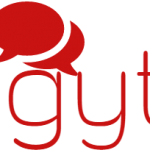Who doesn’t want to learn how to start avoiding self employment taxes? Anyone who’s experienced the grim reality of paying for the privilege of work at home knows that the self employment tax can be pretty steep. The more professionals make through self employment, the more they have to pay for it. It’s pretty hard to find success when it only causes an increase in taxes.
Why not start avoiding self employment taxes instead? Self employed professionals are still liable for income taxes, working expenses and even other concerns (such as health care, Web site costs, etc.). It would be much nicer to pay less for work at home.
Paying to Work at Home
The formula for figuring the self employment tax seems much more complicated than it actually is. After multiplying net self employment income by 92.35%, the remaining amount (the net earnings) is multiplied by 15.3% for Medicare and Social Security taxes. This is the cost of the self employment tax – roughly, $14 for every $100 earned, until or unless the professional earns an excess of $76,200 on the year. Any income earned in excess of this amount is not multiplied by 15.3% for Medicare/Social Security, but by 2.9% (because those who make more pay less).
But do the math and face the reality of giving the government $14 for every $100 earned, and self employment taxes can feel like a pretty tight squeeze. Factor in income taxes (which can run at right about the same amount, depending on the professional’s tax bracket), and the cost of work at home is suddenly pretty steep. Why not start avoiding self employment taxes instead?
Avoiding Self Employment Taxes

Alas, avoiding self employment taxes isn’t really possible – and more’s the pity. According to the United States government, an individual is hereby self employed if: they own/operate a trade or business as a sole proprietor or independent contractor; they are a member of a partnership of the aforementioned; or, they are otherwise in business for themselves. Make money through work at home jobs? That means self employment, too…and, self employment taxes. The government says self employed professionals must pay the tax if they earn $400 or more through their working endeavors.
Self employment taxes apply to all professionals at any age, even those who are currently receiving Medicare and Social Security benefits. Avoiding self employment taxes sounds wonderful, but it’s hardly plausible for those who earn a living by self employment and work at home. Taxes are a fact of every life, and perhaps it seems that the self employed professional pays a bit more. Lessen the blow by claiming as many expenses as possible and making quarterly or monthly tax payments, to avoid a lump sum payout once a year.
Self-Employment Facts and Fiction
The self employed don’t pay taxes! Full-time self-employment is easier than working part-time for someone else! Work at home jobs are easy to get! Sound too good to be true? That’s only because it is. Learn how to separate the self employment facts and fiction…before it’s too late.
Self-Employment: The Fiction
There are lots of myths surrounding self-employment, and even more facts that are hardly mentioned at all. Many professionals find themselves establishing a work at home career, home-based business or other form of entrepreneurship and learning some of these facts a little too late. Find out everything that’s not true about self-employment:

- The self employed can’t receive unemployment benefits. This is fiction! Self-employment assistance programs work just like state-sponsored unemployment benefits, and work at home professionals can obtain these benefits under the same set of requirements. Individuals should talk to their state government to learn how to receive these benefits.
- Independent contractors don’t pay income taxes. It’s true that self-employed professionals of all types (yes, even business owners) are compelled to pay the self-employment tax…but, they are also required to pay standard income taxes as well. Often, independent professionals do not receive standard paychecks with taxes deducted, instead earning monies in a gross sum. These workers are required under law to claim this income and pay subsequent taxes on their own, however.
- Work at home is easy. Perhaps unfortunately, this is also a bit of fiction…but only as far as perception goes. For instance, it’s much easier to work at something that’s loved, for oneself, than it is to do a job that’s only mildly tolerable for someone else. Self-employment in all forms requires hard work. It takes time and perseverance to find work at home jobs, establish a reputation and build a great resume. It’s not easy to work alone, even at home, but it can be very rewarding.
- It takes money to make self-employment work. This is patently untrue, though many believe this when trying to start out in self-employment. Many work at home scams promise packages, products, books, Web sites – anything and everything – as a way to help others establish home-based businesses. Remember this: no legitimate employer will ask their employees for money. Period.
The Facts of Self-Employment
Learn how to separate the myths from the meat when it comes to self-employment. It’s possible to discover the truth about being self employed before it’s too late and a mistake has already been made. Before spending money or earning money through independent efforts, find out about health care, self-employment taxes, insurance concerns and other issues that will arise. Don’t get bogged down in all the fiction- do the research, ask questions and find the answers.





